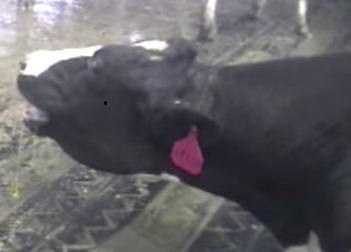Washington could become one of eight states to limit the undercover investigations of animal rights groups on farms.

House Bill 1104 would make it a crime to record agricultural operations without permission. Anyone found guilty of intending to cause economic injury to a farm, under the bill, would be charged with a gross misdemeanor and face a maximum sentence of one year in jail and a $5,000 fine.
The bill, called “ag-gag” by opponents, is modeled after a law passed in Idaho last year. Following a Los Angeles-based animal rights group release of a video showing abuse at a dairy farm, the state passed the law to curtail similar undercover investigations. One dairy worker was sentenced to 180 days in jail for beating cows inside a milking barn. The farm fired at least five additional workers.
Prime sponsor Rep. Joe Schmick says the bill would protect farmers, ranchers and growers from unfair sabotage. “Every farmer, and I’m speaking as a farmer, is scared of misrepresentation when we’re going everything right,” the Colfax Republican told the House Public Safety committee Tuesday.
Opponents, which include animal rights groups, labor organizations and the American Civil Liberties Union, say the bill is unconstitutional and violates First Amendment rights. “This is pretty clearly an attempt to protect certain kinds of businesses from certain kinds of unflattering publicity,” Washington’s ACLU spokesperson Chris Kasaas said. “We already have laws that outlaw trespass and industrial sabotage. This bill is targeting speech, and a very specific kind of speech.”
Schmick says the bill doesn’t keep people from reporting crimes. Illegal behavior should be reported, he says, and farm owners would have to prove someone entered an agricultural business with intent to cause economic harm.
At least seven states have so-called “ag-gag” laws making it a crime to secretly film farm operations without the owner’s consent. Kansas, Montana and North Dakota were the first in the 1990s. Since then, Idaho, Iowa, Missouri and Utah have followed.
Dan Paul, Washington director of the Humane Society of the United States, told TVW this bill would outlaw important investigations for improving agricultural conditions — for our health and animals’. A farm in California, he says, was sending cows too sick to stand up to the slaughter lines. “That meat was going to school lunch programs in the state of California,” he said. “Without that undercover investigation, we would never have discovered.”
Beyond animal abuse, labor groups say the law would discourage farm workers from reporting labor abuse. Actions described in the bill, Columbia Legal Services attorney Andrea Schmitt said, “are the same actions critical to showing farms are violating Washington’s long-standing labor laws.”
Demonstrating against farms or recording labor negotiations she says would fall under the language of the bill, which would make it a crime to intentionally cause economic injury.
Farmers, ranchers and growers protected under the bill were not at the hearing to testify. Schmick told the committee it’s because agricultural business owners were scared to weigh-in on the controversial bill for fear of retaliation from animal rights and other groups.